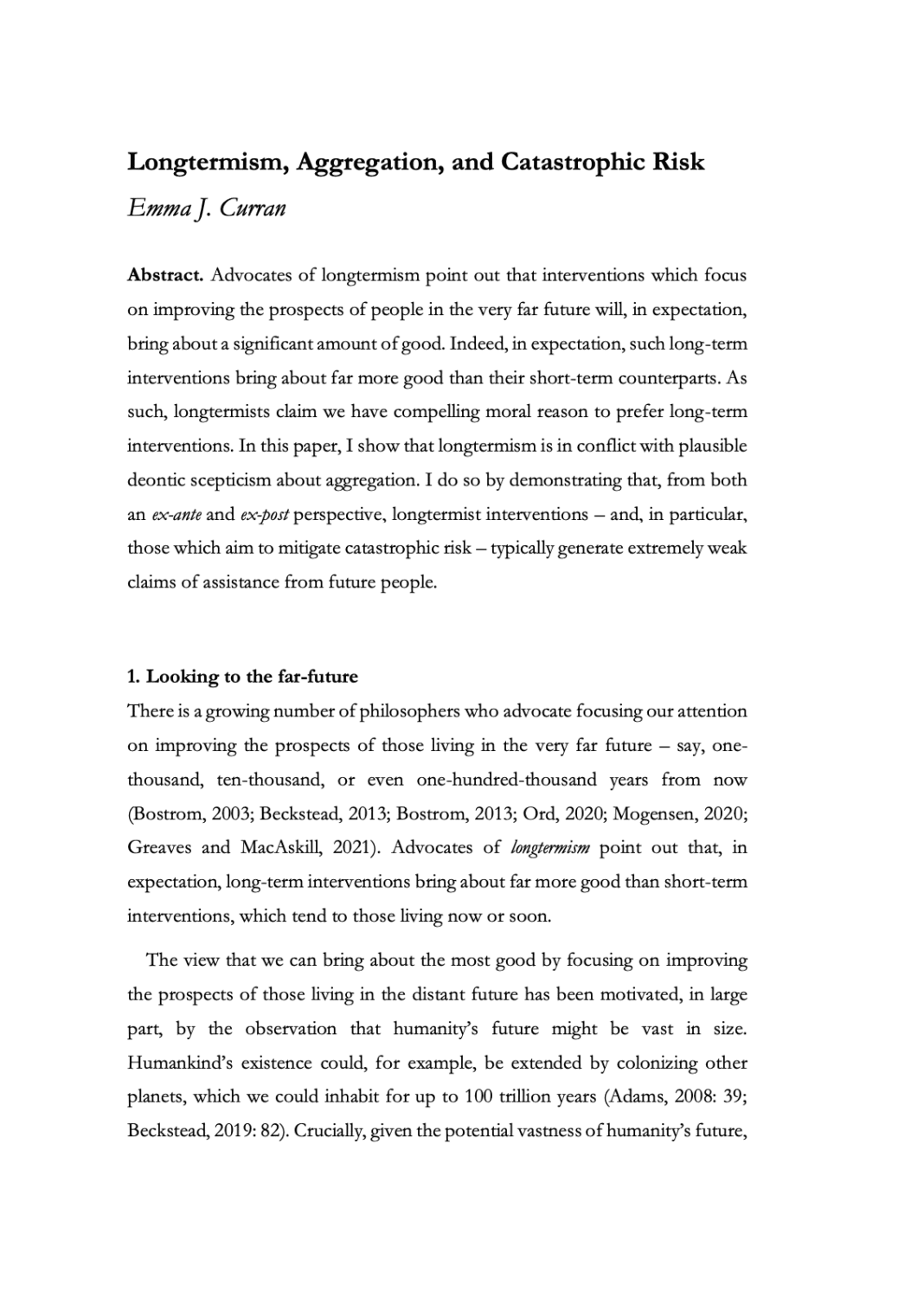Longtermism, aggregation, and catastrophic risk
Emma J. Curran (University of Cambridge)
GPI Working Paper No. 18-2022
Advocates of longtermism point out that interventions which focus on improving the prospects of people in the very far future will, in expectation, bring about a significant amount of good. Indeed, in expectation, such long-term interventions bring about far more good than their short-term counterparts. As such, longtermists claim we have compelling moral reason to prefer long-term interventions. In this paper, I show that longtermism is in conflict with plausible deontic scepticism about aggregation. I do so by demonstrating that, from both an ex-ante and ex-post perspective, longtermist interventions – and, in particular, those which aim to mitigate catastrophic risk – typically generate extremely weak claims of assistance from future people.
Other working papers
Training effective altruism – Sultan Mehmood, (New Economic School), Shaheen Naseer (Lahore School of Economics) and Daniel L. Chen (Toulouse School of Economics)
Our randomized controlled trial of Pakistan’s deputy ministers compares two schools of thought about how to cultivate prosociality. We find that training the utilitarian value of empathy results in a 0.4-0.6 standard deviation increase in altruism, cooperation, coordination, and teamwork. Field outcomes—orphanage visits, volunteering in impoverished schools, and blood donations—also roughly double. We find that treated ministers increased their mentalizing of others…
A paradox for tiny probabilities and enormous values – Nick Beckstead (Open Philanthropy Project) and Teruji Thomas (Global Priorities Institute, Oxford University)
We show that every theory of the value of uncertain prospects must have one of three unpalatable properties. Reckless theories recommend risking arbitrarily great gains at arbitrarily long odds for the sake of enormous potential; timid theories recommend passing up arbitrarily great gains to prevent a tiny increase in risk; nontransitive theories deny the principle that, if A is better than B and B is better than C, then A must be better than C.
‘The only ethical argument for positive 𝛿’? – Andreas Mogensen (Global Priorities Institute, Oxford University)
I consider whether a positive rate of pure intergenerational time preference is justifiable in terms of agent-relative moral reasons relating to partiality between generations, an idea I call discounting for kinship. I respond to Parfit’s objections to discounting for kinship, but then highlight a number of apparent limitations of this…

